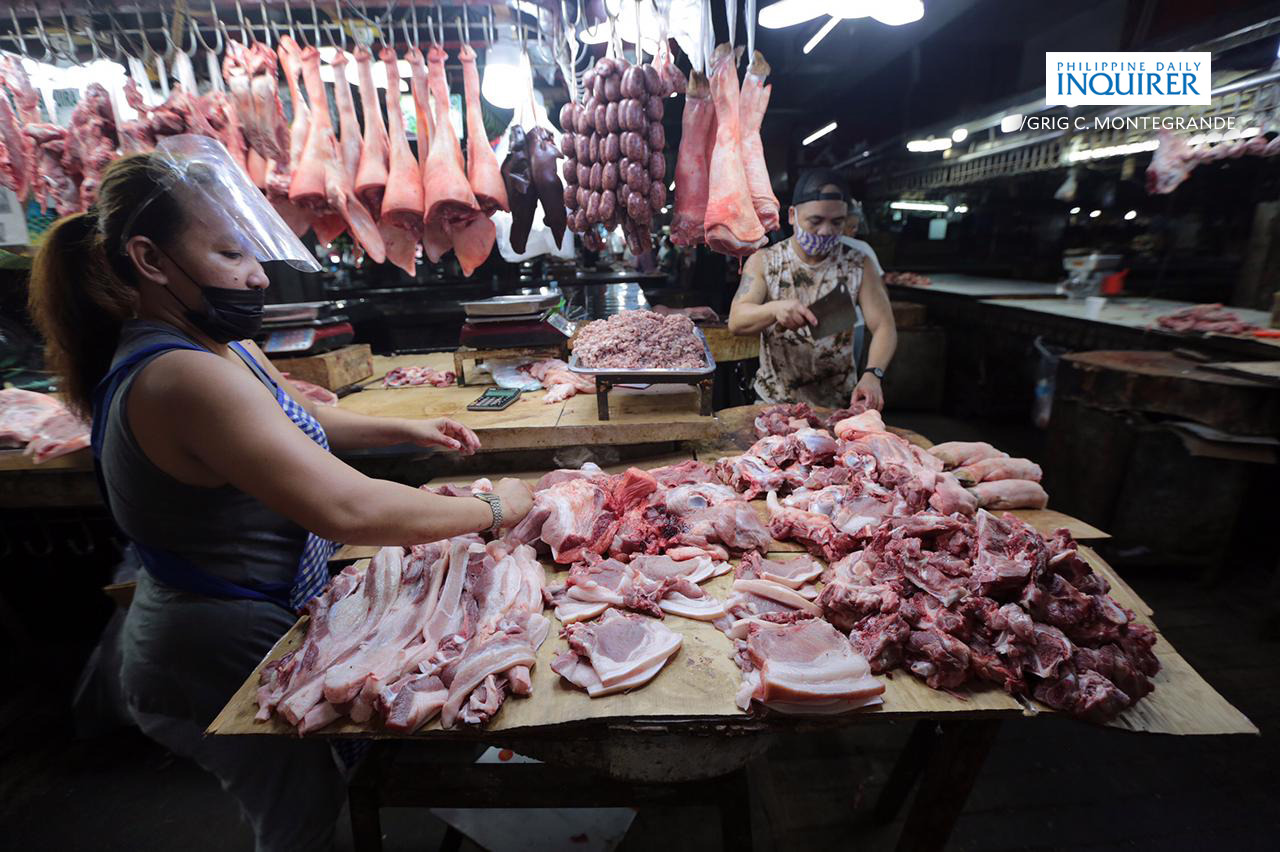PH can now export meat, meat products to Japan

FILE PHOTO: Meat vendors at Commonwealth Market, Quezon City in this February 9, 2021, photo. INQUIRER file photo / GRIG C. MONTEGRANDE
MANILA, Philippines—The Philippines can now export more meat varieties to Japan after the Japanese Ministry of Health, Labour and Welfare (MHLW) included the country on its list of certified nations that passed the Hazard Analysis and Critical Control Point-based (HACCP) hygiene management protocols.
As per the Department of Agriculture, the Philippines previously only exported chicken that would be used for Japanese grilled delicacy yakitori.
“This is definitely a big boost for our livestock producers, and food manufacturers, meat processors and exporters, as we continue to look for market opportunities to jumpstart the country’s economic recovery amid the pandemic,” said Agriculture Secretary William Dar in a statement.
“It is also a testament to our commitment in providing safe, healthy and world-class quality food for both domestic and export markets, and Japan is a discriminating market. Thus, we look forward to penetrating more export markets. We are pleased that we have successfully hurdled Japan’s stringent food safety and hygiene management standards.”
This development will allow the Philippines to export beef, carabeef, pork, chevon, mutton and their by-products to Japan.
Article continues after this advertisementArticle 11 of Japan’s Food Sanitation Law provides that only meat products using HACCP management systems may be imported into the country.
Article continues after this advertisementThe HACCP is a science-based, systematic protocol that identifies hazards and measures for their control to ensure food safety.
“The HACCP certification implies that the systems of certification of the Philippines are at par with global standards,” said Jocelyn Salvador, the DA-National Meat Inspection Service Director.
“The significance of this move by Tokyo is that they rely upon and trust our systems of certification. This means that if the Philippines certifies certain establishments and meat products, Japan will automatically accept this certification without question,” added Salvador.
Japan remains one of the major partners of the Philippines in trade and it was further enhanced through the signing of the Philippines-Japan Economic Partnership Agreement in 2006.
The Philippines’ other exports to Japan include Cavendish banana, pineapple, and coconut oil.
“This is a victory, and we are now reaping the rewards of the DA’s continuing efforts to educate Philippine food manufacturers to adhere to global food safety standards,” said Dar.